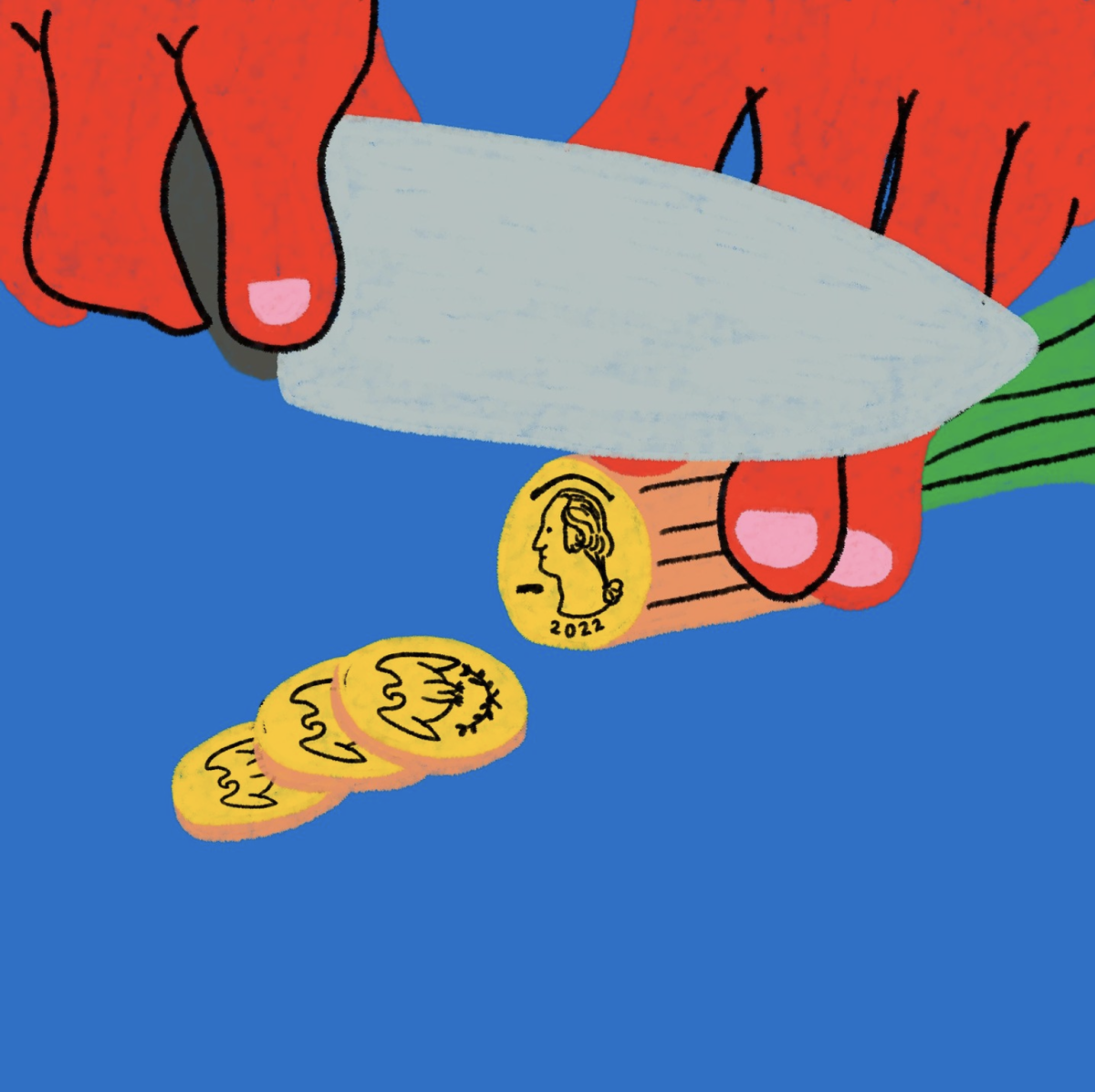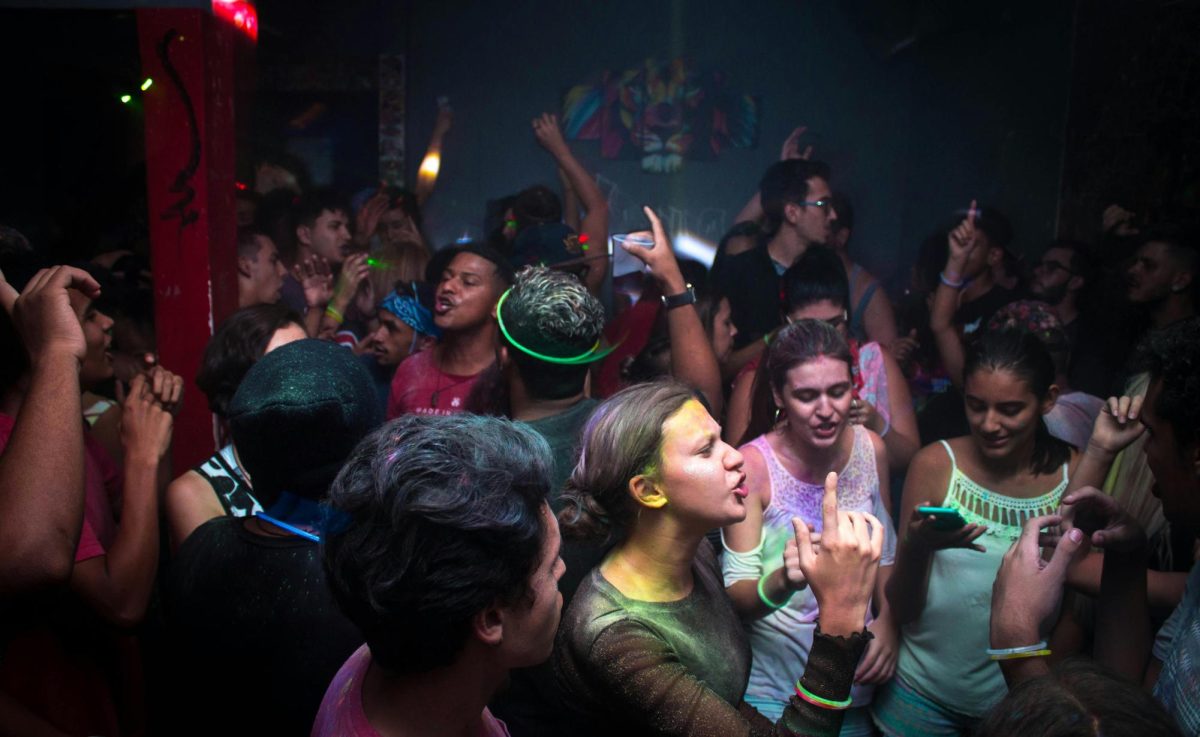A word commonly used when talking about economics is inflation, which is the rate of price increase for goods and services over a set period of time. Every country at one point has experienced this occurrence, some worse than others. During the beginning of World War I, inflation was at a high rate in America coming in at around 18.5 percent, according to the U.S. Bureau of Labor Statistics. The reason for this was that many people were out of the production factories and in the military, stunting both the labor market and their output, making competition for these goods higher. It got to the point where the government had to control the prices so that farmers and other producers would not raise the prices significantly for the remaining amount of products they had.
In the recent years before the pandemic, inflation was relatively low. In early 2020, inflation went off the charts due to the mass panic COVID-19 induced. Food products and amenities went flying off the shelves and facilities that produced these products were closed or running on reduced labor volume due to people getting infected or social distancing requirements. This decrease in labor forces meant that unemployment rates were high, and people, mainly from the working class, were struggling to keep up with their bills and the overall cost of living that felt like it suddenly became exponentially higher.
The working class, which is commonly seen as the so called more polite way to call the lower class, is a term used in socioeconomics to refer to people who work jobs that require little to no education requirements or skills and pay primarily minimum wage standards. These vary from state to state, but New York in particular has a relatively decent hourly wage for certain professions. Despite this, many people still live paycheck-to-paycheck and struggle to make ends meet. Compared to other people dubbed the upper class, who can rake in five to six figures annually, this seems like a dystopian society to live in, but unfortunately it is a reality, especially now where the economic gap between others grows more significantly.
A documentary series about David Beckham and his beginnings of coming from a working-class family to being one of the biggest names in football history, “BECKHAM,” released on Netflix in Oct. 2023, and the first episode left fans extremely critical of the comments his wife and fashion designer, Victoria Beckham, made. The former Spice Girl singer ironically tried to let go of her posh background, and instead tried to appear relatable, saying that she grew up “very working class,” to which her husband, who came from a working-class background, interrupts her, and asks her which car her father drove her to school in. The answer was a Rolls Royce, which is one of the most expensive car brands in the world. Her attempt at appealing to the vast majority of people failed once she responded to her husband’s question. This made people wonder why individuals from affluent backgrounds try to minimize their success and wealth, when there are thousands of individuals who would like to live as comfortably as they do without any immediate concerns for money or living standards.
In New York, the dynamic of both inhabitants who have money and those on welfare are clearly expressed. Manhattan’s Upper East Side is an affluent neighborhood with stores like Jimmy Choo and Harry Winston on the streets, but less than five miles away, in the same city, there is the South Bronx which has a poverty level of 36.3 percent, the area struggling with unemployment and high crime rates.
This disconnect is also common with people reaching a high status and disregarding their beginnings, forgetting where they come from. A reason why this happens so often is that sometimes it is hard for someone to talk about their struggles when they were less fortunate, when opportunities were not around. Some take pride in being self-made and talk about it freely as well. It is something to be proud of especially when you came from nothing or immigrated to a new country in hopes of a better life. Some would rather not talk about it and instead show the luxury goods they have as proof they are financially well off. On the other hand, no one wants to be in the “less fortunate” category, which is why people would splurge their most recent paycheck on a new designer handbag even if it means they need to eat instant ramen for dinner for the next couple of days until they regain their footing.
Despite this apparent and vast class difference in society, we are not past the point of understanding each other. In the end we are all humans trying to navigate this crazy world the best we could. We only show others around us what we want to show them, so it is not incorrect to assume they would do the same. Sometimes it is easier to sit back and judge others for either being too rich or being too poor, but maybe it is nicer to just reflect on ourselves.







